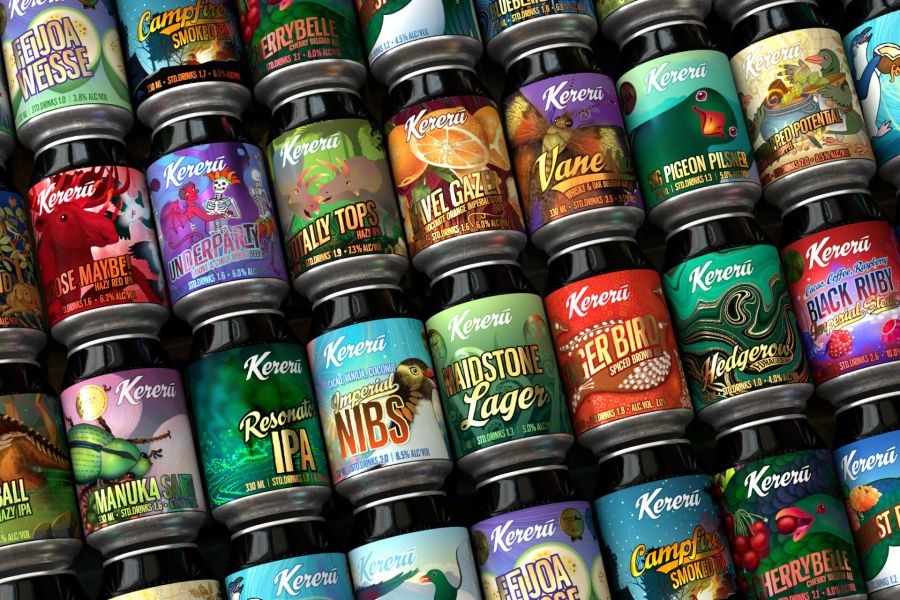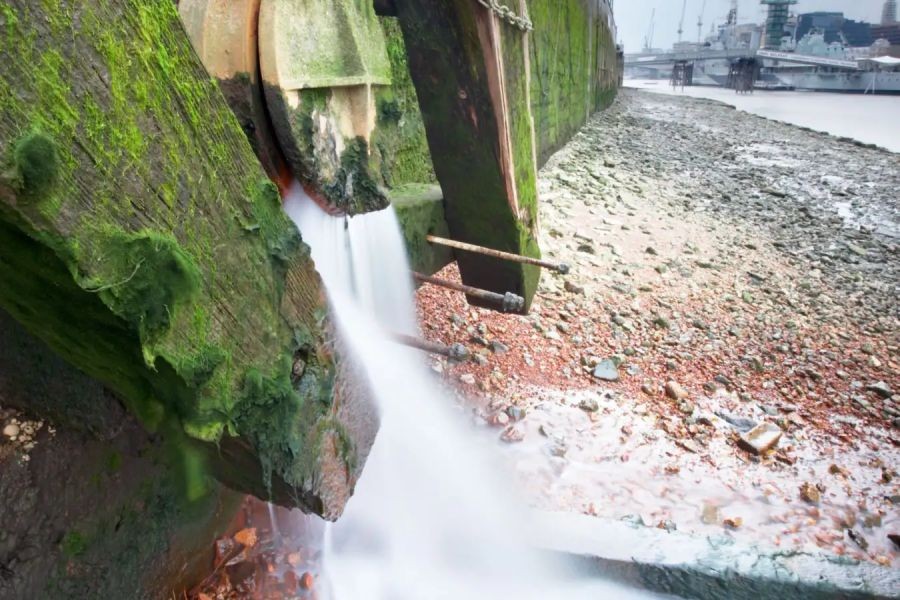Welcome to the realm of sustainable dining! In New Zealand, the quest for eco-friendly food menus is not just a trend but a necessity for preserving our unique environment and supporting local economies. In this article, we'll explore how Kiwi businesses can create sustainable menus that delight customers while minimizing environmental impact. Let's dive into the world of sustainable gastronomy and learn how to craft an eco-friendly food menu in New Zealand.
🔍 Understanding the Kiwi Context: Why Sustainability Matters
New Zealand is renowned for its stunning landscapes and commitment to environmental stewardship. However, the food industry, responsible for a significant carbon footprint, presents both challenges and opportunities for sustainability. According to Stats NZ, agriculture contributes to approximately 48% of New Zealand's greenhouse gas emissions. This statistic underscores the importance of sustainable practices in the food industry.
🌱 Embracing Local and Seasonal Ingredients
One of the most impactful ways to create a sustainable menu is by prioritizing local and seasonal ingredients. This approach reduces the carbon footprint associated with transportation and supports local farmers. In New Zealand, initiatives like the Sustainable Food & Fibres Futures fund, managed by the Ministry for Primary Industries, encourage innovation in sustainable agriculture. By sourcing locally, restaurants not only reduce emissions but also promote regional economies.
🍽 Innovative Strategies for Sustainable Menu Design
1. Plant-Based and Flexitarian Options
Emphasizing plant-based dishes can significantly lower the environmental impact of a menu. A study by the University of Otago found that plant-based diets reduce greenhouse gas emissions by up to 50% compared to traditional meat-based diets. By incorporating more vegetarian and vegan options, New Zealand eateries can attract health-conscious consumers and contribute to environmental preservation.
2. Zero-Waste culinary Practices
Adopting zero-waste principles is another powerful strategy. Restaurants can minimize waste by using the entire produce—think root-to-stem cooking or nose-to-tail for meats. This practice not only reduces food waste but also inspires creativity in the kitchen. The New Zealand-based initiative, Love Food Hate Waste, provides resources and tips for businesses to tackle food waste effectively.
3. Sustainable Seafood Choices
New Zealand is blessed with an array of seafood options, but overfishing poses a threat to marine biodiversity. The Ministry for Primary Industries promotes sustainable fishing practices through the Quota Management System. By choosing sustainably sourced seafood, restaurants can align with conservation efforts and offer responsibly-caught dishes to patrons.
📖 Real-World Case Studies: Success Stories from New Zealand
Case Study: Fergburger – Leading the Charge in Sustainable Dining
Problem: Fergburger, a popular eatery in Queenstown, faced the challenge of high waste levels due to its massive customer base, leading to increased operational costs and environmental concerns.
Action: The restaurant implemented a comprehensive sustainability plan, focusing on waste reduction and local sourcing. They introduced biodegradable packaging and partnered with local farmers to source produce.
Result: Within a year, Fergburger reduced waste by 30% and saw a 20% increase in customer satisfaction. Their commitment to sustainability strengthened their brand reputation, attracting eco-conscious diners.
Takeaway: This case study highlights the power of local sourcing and waste reduction in enhancing both sustainability and customer loyalty. Other Kiwi businesses can replicate these strategies to achieve similar success.
📊 Data-Driven Analysis: The Impact of Sustainable Practices
Adopting sustainable practices not only benefits the environment but also boosts business performance. According to a report by the Reserve Bank of New Zealand, businesses incorporating sustainability into their operations report a 15% higher profit margin compared to those that don’t. This data underscores the financial viability of eco-friendly practices.
Pros vs. Cons of Sustainable Menus
✅ Pros:
- Environmental Benefits: Significant reduction in carbon emissions and waste.
- Brand Loyalty: Attracts eco-conscious consumers, enhancing brand reputation.
- Cost Savings: Reduces waste management costs and promotes efficient resource use.
- Regulatory Compliance: Aligns with government sustainability policies, avoiding potential fines.
- Innovation: Encourages creative culinary practices and new market opportunities.
❌ Cons:
- Initial Costs: Transitioning to sustainable practices may require upfront investment.
- Supply Chain Challenges: Sourcing local and sustainable ingredients can be complex.
- Consumer Perception: Some consumers may be resistant to plant-based or alternative menu items.
- Market Competition: As more businesses adopt sustainability, differentiation can become challenging.
- Operational Adjustments: Requires training and adaptation to new processes.
⚖️ Balanced Contrasting Viewpoints: The Sustainability Debate
Advocate View: The Business Case for Sustainability
Proponents argue that sustainable practices lead to long-term profitability and brand loyalty. Businesses report enhanced customer engagement and reduced operational costs. A 2023 survey by Deloitte found that 62% of consumers prefer to purchase from eco-friendly brands, highlighting the market demand for sustainability.
Critic View: Challenges in Implementation
Critics point out the financial and logistical challenges of implementing sustainable practices. They emphasize the initial investment required and the complexities of supply chain management. However, as technology and innovation advance, these challenges are gradually being addressed.
Middle Ground: Strategic Sustainability
A balanced approach involves gradual implementation and strategic partnerships. By starting small and scaling up, businesses can manage costs and refine their processes. Collaborations with local suppliers and sustainability experts can facilitate smoother transitions.
🔮 Future Trends & Predictions: The Evolution of Sustainable Dining
By 2030, it's predicted that sustainable dining will be the norm rather than the exception in New Zealand. The Ministry for the Environment's Climate Change Response Strategy outlines a roadmap for reducing emissions across industries, including food services. As consumers become more environmentally conscious, demand for sustainable options will continue to rise, driving innovation in menu design and sourcing practices.
❌ Common Myths & Mistakes in Sustainable Menu Crafting
Myth: "Sustainable menus are too expensive for small businesses."
Reality: While initial costs may be higher, long-term savings in waste management and increased customer loyalty often offset these expenses. Embracing sustainability can lead to profitability, as demonstrated by numerous Kiwi businesses.
Myth: "Eco-friendly menus lack flavor and variety."
Reality: Sustainable menus can be rich in flavor and diversity. By focusing on fresh, local ingredients and innovative cooking techniques, chefs can create delicious and varied dishes.
Myth: "Sustainable practices are only for large corporations."
Reality: Small and medium-sized enterprises (SMEs) can also benefit from sustainable practices. Initiatives like the Sustainable Business Network support SMEs in adopting eco-friendly practices through resources and networking opportunities.
🚀 Conclusion: Embrace the Future of Sustainable Dining
Crafting a sustainable and eco-friendly food menu in New Zealand is not just a choice but a strategic advantage. By embracing local sourcing, plant-based options, and zero-waste practices, businesses can align with consumer expectations and contribute to environmental preservation.
What's your take on sustainable dining in New Zealand? Share your insights and experiences below!
🔍 People Also Ask (FAQ)
- How does sustainable dining impact businesses in New Zealand? Sustainable dining enhances brand reputation, reduces costs, and aligns with consumer preferences for eco-friendly options.
- What are the biggest misconceptions about sustainable menus? A common myth is that sustainable menus are costly, but long-term savings often outweigh initial investments.
- What upcoming changes in New Zealand could affect sustainable dining? Policy updates promoting low-carbon practices will drive the adoption of sustainable dining options.
🔍 Related Search Queries
- Sustainable food practices in New Zealand
- Eco-friendly restaurant trends NZ
- Local and seasonal ingredients NZ
- Zero-waste dining tips NZ
- Sustainable seafood choices NZ
- Plant-based menu ideas NZ
- Environmental impact of food industry NZ
- Green dining in New Zealand
- Waste reduction in NZ restaurants
- Future of sustainable dining NZ































Herculesteel
15 days ago